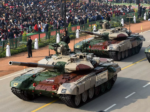China’s Role in the Israel-Palestine Conflict: A Test of Diplomatic Clout

Image Source: Financial Times
In June, when Palestinian President Mahmoud Abbas visited Beijing, China pledged to contribute “Chinese wisdom, Chinese strength” to resolve the longstanding conflict between the Palestinians and Israel. This commitment came on the heels of a Beijing-brokered reconciliation between Iran and Saudi Arabia, demonstrating China’s ambitions to expand its diplomatic influence in the Middle East, traditionally dominated by U.S. power. However, as a new outbreak of hostilities erupts between Israel and Gaza, China’s initial response to the crisis, or lack thereof, reveals the limitations of its influence in the region.
China’s response to the Israel-Palestine conflict, following a surprise attack by Hamas, has been characterized by a bland call for restraint from both sides and a lack of condemnation for Hamas’s actions, despite the civilian casualties and hostage-taking. Chinese President Xi Jinping, who had previously touted a Beijing-led security initiative for the Middle East as an alternative to the U.S.-led system, has remained publicly silent on the conflict.
Experts argue that this initial response exposes China’s limited influence in the region, despite official propaganda promoting China as a new peacemaker. According to Jonathan Fulton, an Abu Dhabi-based senior non-resident fellow at the Atlantic Council, “China doesn’t really have the experience or expertise in the region to make a meaningful change” in the complex Israel-Palestine conflict.
China’s response, or lack thereof, contrasts with the strong condemnations against Hamas from the United States, Europe, and other regions. Israel expressed disappointment with China’s response, calling for a “stronger condemnation” of Hamas. U.S. Senate Majority Leader Chuck Schumer also criticized China’s lack of sympathy or support for Israel during these tragic times.
China’s reluctance to name or condemn Hamas mirrors its stance on the Ukraine conflict, where it refused to condemn Russia’s aggression. This stands in stark contrast to China’s “zero-tolerance” approach to terrorism in Xinjiang, where it has faced criticism for its treatment of Uyghurs and other Muslim minorities.
Despite its claims of neutrality, China’s state-run media coverage of the conflict appears slanted. There is a focus on Israel’s airstrikes on Gaza and the devastation they caused, with limited coverage of Hamas’s attacks on Israeli civilians. This selective reporting indicates that China may be taking sides in the conflict, similar to its pro-Russian coverage of the Ukraine war.
China’s state media blamed Western countries, especially the U.S., for taking sides and exacerbating the conflict. The Global Times, a nationalist tabloid affiliated with the Chinese Communist Party, criticized Western countries for creating obstacles to crisis resolution. Chinese media also highlighted the U.S.’s increased military presence in the region, framing it as a source of tension.
On Chinese social media, there is strong support for the Palestinians and criticism of Israel, often with veiled or direct criticisms of the U.S. However, some users expressed shock and outrage over Hamas’s brutal attacks on Israeli civilians. This divergence in public opinion reflects the complexity of China’s stance on the conflict.
China’s response to the Israel-Palestine conflict aligns with its traditional support for the Palestinians. While China has deepened economic ties with Israel, the country remains firmly in the U.S. camp, which is a major concern for China as its global rivalry with the United States intensifies.
China’s role in brokering peace in the Israel-Palestine conflict is being tested in the face of renewed hostilities. China’s initial response has revealed its limited influence in the region, and its reluctance to condemn Hamas has drawn criticism from Israel and the United States. China’s stance on the conflict reflects its use of international issues as tools for domestic and foreign policy objectives, but resolving the complex Israel-Palestine conflict may prove beyond its current capabilities.
Team Profile

- News Writer
- Harshit Tokas is a Political Science and International Affairs Post-Graduate with a passion for understanding and analyzing complex political landscapes. Skilled in research, data analysis, and policy development. Eager to contribute his knowledge and insights to drive positive change.
Latest entries
 English1 December 2023Ambati Rayudu Backs Ruturaj Gaikwad as a Future Leader of Indian Cricket
English1 December 2023Ambati Rayudu Backs Ruturaj Gaikwad as a Future Leader of Indian Cricket English1 December 2023Changing Tide: Pujara and Rahane Omitted from South Africa Tour Squad
English1 December 2023Changing Tide: Pujara and Rahane Omitted from South Africa Tour Squad Defence1 December 2023India Greenlights Procurement of Advanced Military Assets in Multi-billion Defence Upgrade
Defence1 December 2023India Greenlights Procurement of Advanced Military Assets in Multi-billion Defence Upgrade English1 December 2023Delhi Government Pushes for Completion of Asia’s Largest Wastewater Treatment Plant
English1 December 2023Delhi Government Pushes for Completion of Asia’s Largest Wastewater Treatment Plant









